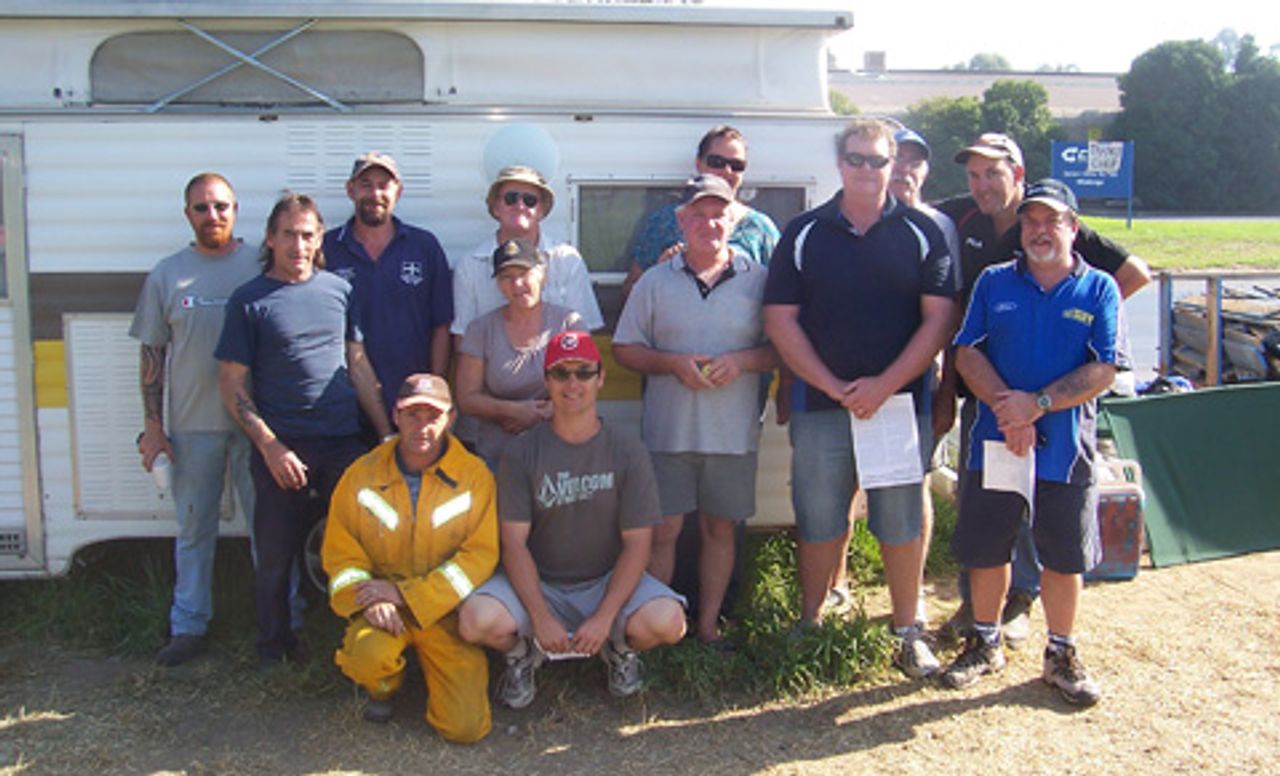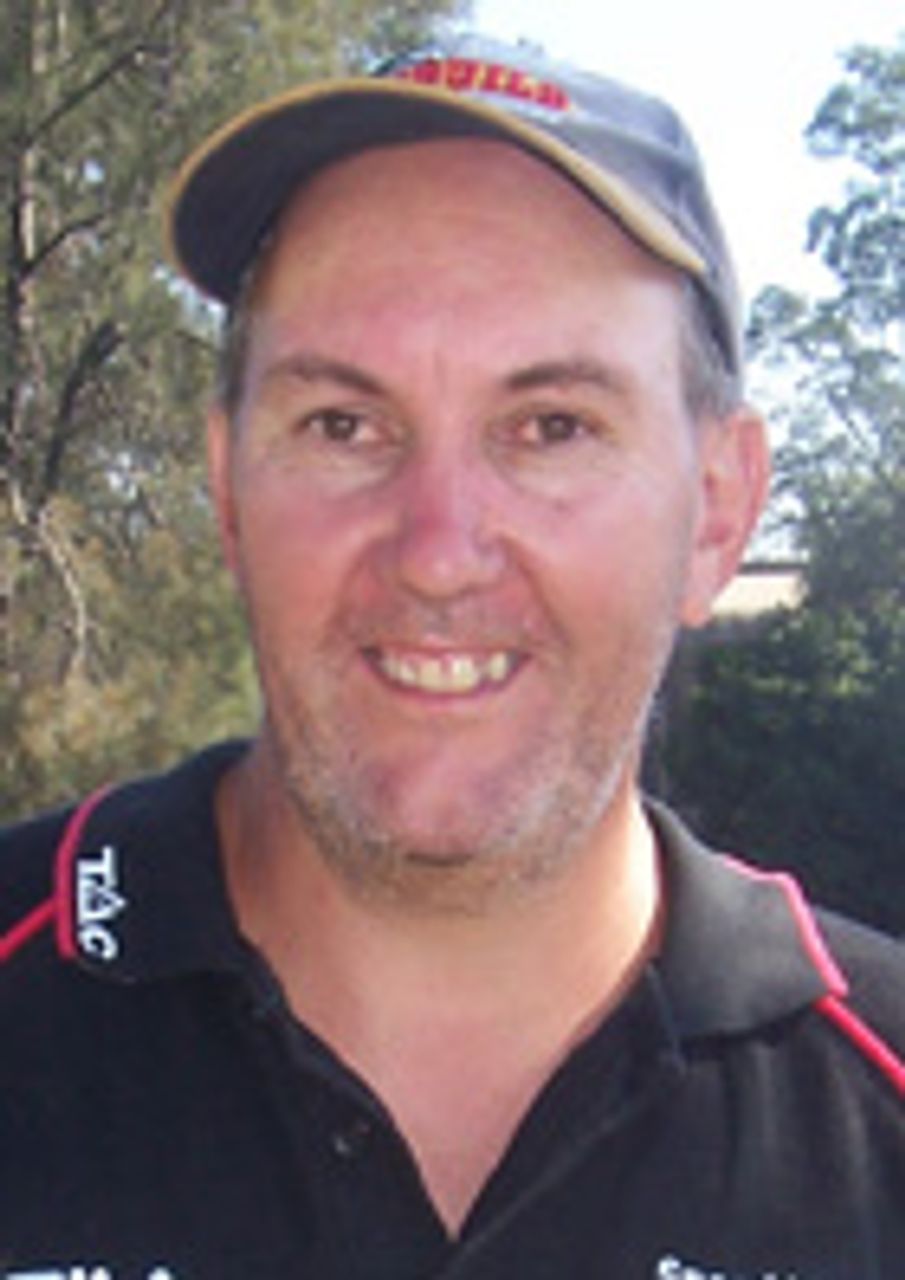Workers at Paragon Printers in Wodonga on the NSW-Victorian state border have lifted a week-long picket and will return to work under a deal reached by the Australian Manufacturing Workers Union (AMWU) and the administrator on Friday.
 Paragon workers' picket line at Wodonga
Paragon workers' picket line at Wodonga
Some 110 production workers were stood down on March 17 after the company, along with the associated firm Moore Office, was put into voluntary administration by owner Amir Hyster on March 5. Moore Office, with 12 employees, is still operating.
Under the AMWU’s temporary agreement, which runs for just three weeks, only 90 workers selected by the administrator will be employed. Union organiser Leigh Diehm claimed the deal was “a good result,” even though not all workers were reinstated and there are no guarantees of jobs or payments of accrued entitlements after the three-week period has expired.
The agreement is certainly a good result for the administrator and major creditors. Workers will complete unfinished orders, and jobs can be shipped now that the picket line has been lifted. Under a union-organised arrangement, the 20 workers not reinstated will be paid from contributions made by the workers who return to work.
Last week the police attempted, but failed, to bust the picket line after Moore International was granted an injunction in the Victorian Supreme Court on March 24 against workers blocking entry to the plant. The AMWU has now accomplished what the police were unable to carry out.
Amir Hyster, an Israeli businessman, is the majority shareholder of Argus Solutions and the M10 group of companies that own Paragon. Despite being requested by administrators Hall Chadwick to remain in Australia, Hyster fled the country on March 9, leaving behind an estimated $20 million in debts. He is believed to be in Spain or Israel.
While Hyster’s dubious practices may well have contributed to the company’s problems, Paragon’s demise is a sharp reflection of the crisis engulfing the printing industry in Australia and overseas. The global financial crisis that began in 2008 has produced falling demand and increased competition, while at the same time drying up credit for the highly capital-intensive industry.
Several longstanding printing companies across the country have been placed in administration or closed down this year, including Worldwide Online Printing, Pettaras Press, Apex Press and Rapid Digital. An article on March 22 in the web magazine, Print21online, warned: “Despite claims that the worst may be behind us, the effects of the Global Financial Crisis and a continually consolidating industry look likely to reverberate for some time to come.”
The Paragon workers are owed tens of thousands of dollars in unpaid wages and around $10 million in accrued entitlements—such as holiday and long service leave pay. The company has also not made mandatory superannuation payments, and deductions for union dues are missing.
Before putting the company into administration, Hyster appears to have transferred Paragon assets to other companies under his control. Documents supplied to Melbourne’s Herald Sun, for example, show that the $10 million block of land on which Paragon stands was earlier transferred to Hyster’s superannuation fund.
Undoubtedly, the hardship and uncertainty facing workers played a part in their decision to accept the deal struck by the union on Friday. Cliff Harmer, the sole income earner for his family, told the media he had received just $200 from his last fortnightly pay cheque of $1,700. He said he would struggle to pay for life-saving heart surgery for his five-year-old son Tyler, who suffers Wolff-Parkinson-White syndrome.
A casual worker, one of around 25 told by the administrator they were no longer required, said it would be “very tough” finding alternative work in the area. He said he was one of 55 unsuccessful applicants for a job as an attendant at a service station.
The AMWU never had any intention of waging a genuine campaign to defend jobs. From the outset, the union worked overtime to contain the dispute to protests and futile appeals to the Rudd Labor government and local MPs. Last week union officials led a march by about 20 workers to protest at the empty office of local Liberal parliamentarian Bill Tilleys.
The AMWU made no effort to mobilise its own members in the area, let alone other sections of the working class, to take industrial action to back the Paragon workers. When the picket began to attract support from offshift workers from nearby industries, the union moved to quickly close it down.
Labor’s federal Employment Participation Minister Mark Arbib dismissed the Paragon workers’ appeals for help in defending their jobs, contemptuously declaring that “many workers will soon have access to some form of financial assistance” through the government social security agency Centrelink.
With the 90 workers back on the job, the union is engaged in talks with administrators to sell off the enterprise or liquidate its assets. Union organiser Diehm is on record saying that the “best hope for the employees would be if the administrator could help the company recover from its debts, or sell it as a going concern”.
The AMWU has deliberately encouraged this “hope” although there is no evidence of any offer. Even if such a buyout did emerge, it would almost certainly involve restructuring the failed company and slashing jobs. The fact that 20 workers have not been reinstated is itself a sharp indication that more jobs would go.
Such restructurings have been carried through again and again with the direct assistance of the unions. Like its counterparts in other industries, the AMWU is attempting to demonstrate to the Rudd government and other employers that it can be trusted to dissipate and suppress the opposition of workers to plant closures and job cuts.
The defence of jobs, working conditions and entitlements at Paragon, and throughout the printing industry, requires an industrial and political campaign directed against the pro-market agenda of the Rudd government and the entire official political establishment.
At the centre of this campaign must be the fight for a socialist program, based on the reorganisation of the economy to meet social need and not private profit. In order to break out of the straitjacket imposed by the unions, workers should begin to develop new organs of struggle, such as independent rank and file factory committees, to organise the occupation of Paragon and other factories threatened with closure and to mobilise other sections of workers in support.
WSWS reporters spoke with Paragon workers over the weekend.
 Darren Chant
Darren Chant Darren Chant, who has worked at Paragon for 26 years, said: “Everyone’s been here a long time. I think the average would be over 20 years. Since I started, the workforce has been halved. In their prime, Moore had plants in Perth, Melbourne, Sydney, and Wagga. Here at Wodonga we used to have two plants operational. About two years ago, they shut one plant and are now using it as a warehouse. There’s been a lack of investment. No new equipment.
“It was electric to see the team on the picket. I hope we can take that camaraderie back inside. We met here last night. I’m going back to work. We will all put in a percentage of our wages for the guys who have not been reinstated so they don’t lose anything. It will be worked out in a few days. It was agreed to by unanimous vote. I have a mortgage. I had to contact the bank. I was very nervous. It was hard on my wife, especially coming into Easter. How do you celebrate Easter?
“At the back of everyone’s mind is that this return to work is a ploy. What we want the public to understand is that Amir Hyster has stolen our money. He’s owned [the company] for 5 or 6 years. He bought Moore lock, stock and barrel. Apparently he paid only $300,000 but it’s worth $14 million. Hyster made a killing. Moore didn’t want the burden of workers’ entitlements. The redundancy agreement here is four weeks’ pay for everyone and then three weeks’ pay for every year of service. I would be up for $85,000.”
 Bob Ewing
Bob EwingBob Ewing said he was happy with the outcome, but felt for the workers who were not reinstated. “I’m a printing machinist. I’ve been a printer all my life. I’ve never been out of work. I used to work in Sydney and then I worked at Moore in Wagga. When they shut down Wagga, I moved to Wodonga.
“When I started there was at least double the number of workers. They shut one of the plants. Some of the old printing plant is still in there. My machine dates from 1986. It makes the credit card forms for the manual swipe machines. Demand for these has dropped over the years. Paragon also prints the Metcard tickets for the Melbourne public transport, car registration labels and work for the Australian Taxation Office.
“The Labor government got in under false pretences. They were gearing up that they were going to help the workers but the workers aren’t happy. The response to our picket was brilliant. I’ve never ever been on strike or a picket line in my life. There was enjoyment and it was very emotional. Workers from Wilsons and Chep [factories across the road] came over. Every day people dropped off food and drinks.”
Subscribe to the IWA-RFC Newsletter
Get email updates on workers’ struggles and a global perspective from the International Workers Alliance of Rank-and-File Committees.
